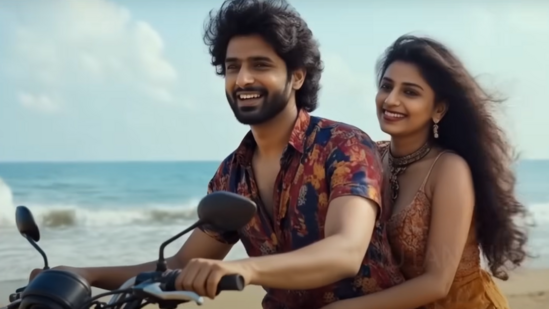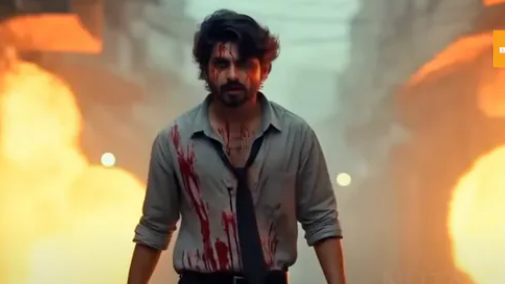- A Bengaluru priest has directed a Ai Kannada film called Love You. What sets it apart is that he used artificial intelligence throughout many aspects of the filmmaking process. It involves assistance in writing, visualization, and editing. It is one of the first Kannada films to do so extensively using Artificial Intelligence.
- Love You was made with a budget of ₹10 lakh. Even so, the film is a complete feature with a running time of 95 minutes. Artificial Intelligence decreased costs and quickened the production. It reveals that even indie creators can make films with technology’s assistance.
- The director has been granted a U/A rating. This is suitable for viewing by all ages, but children younger than 12 years should be accompanied by a parent while watching. The certificate makes it possible to have the film released.
The Ai Vision Of the Director
Narasimha Murthy soon to be director of Ai Movie, a priest from Siddehalli village near Bengaluru, to have directed the world’s first Artificial Intelligence . Titled ‘Love You’, the 95 minute Kannada film has received a U/A certificate from the Central Board of Film Certification (CBFC), signalling a milestone moment for regional cinema and AI driven filmmaking.
Murthy, a priest at the Hanumantharai Temple, joined forces with graphic designer turned Artificial Intelligence technician Nuthan to develop his idea. Though they were just two people working together, they came up with the whole cast, soundtrack, visuals, and even drone shots with the help of almost 30 Artificial Intelligence tools. The six month shoot was finalized at a small cost of Rs 10 lakh, much of which was used for software licencing.
Murthy said, “I wanted to make the world’s first Artificial intelligence feature film and release it. To begin with, I’ll be screening it on just one screen to set the record.” The film includes 12 original songs and Artificial Intelligence generated dialogues, although Murthy wrote all the lyrics and dialogues himself.
Murthy acknowledged the technology’s limitations when he said, “Even the regional censor officer noticed discrepancies in the features of the characters from one scene to another. Defining emotional expressions was difficult, and lip syncing is a far cry.” But the CBFC is said to have been taken aback by the film’s ambition and innovation.
A New Chapter for Indian Cinema
Nuthan, the film’s AI engineer, highlighted the rapid evolution of AI tools, saying, “The tools we used are already six months old. If we recreated the same film today, it would be a thousand times better.” From characters to music and cinematography, everything was created digitally, setting a precedent in low budget regional cinema.
Reportedly, Murthy is already working on two more AI driven projects. One will explore the life of Bengaluru’s founder, Kempe Gowda, and another will depict the historical figure Immadi Pulikeshi. The first of these is expected to be completed within two months.

This milestone project has already gained notice from both industry filmmakers and technology enthusiasts. It paves the way for a future where regional storytellers can produce effective content without requiring enormous budgets or large production houses. Most importantly, it proves that cultural influencers even those with spiritual upbringings can adapt and lead the way for the future of technology enabled creativity.
With Love You being the first ever Kannada movie produced through artificial intelligence, it could be the beginning of a film revolution in India. And all thanks to a priest, a cause, and a passion for film making.
Creativity or Crisis?
Where Love You is a bold move into the future in filmmaking, not everyone is cheering. The advent of AI in movies has raised questions regarding the future of creativity, uniqueness, and work in the movie industry. It is feared by critics that the more capable the AI tools are, the more likely they might replace writers, editors, designers, and other creative professionals who have long created stories. Others are concerned about the ethics involved like AI created deepfakes, voice cloning, or losing human emotion in narratives.

There is also the issue of regulation. With more AI generated movies, who determines the standards for quality, transparency, and ownership? These issues raise the need for considered guidelines to reconcile innovation with integrity, so that technology enhances and does not substitute human creativity.
Also Read : “Rate Cuts Should Be Done Soon” Warns Trump, Will Jerome Powell Consider?



